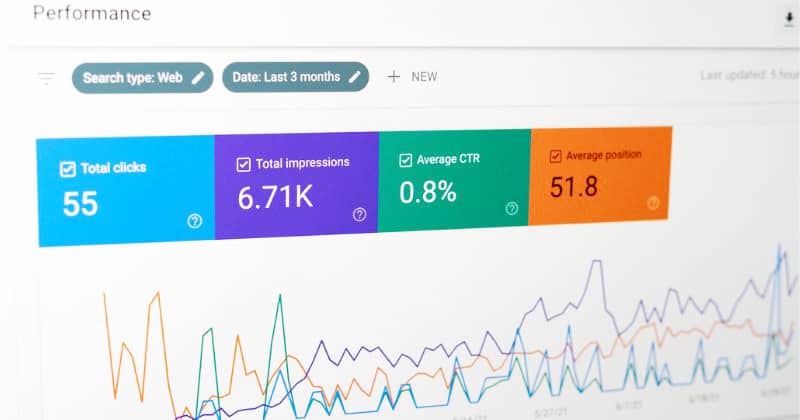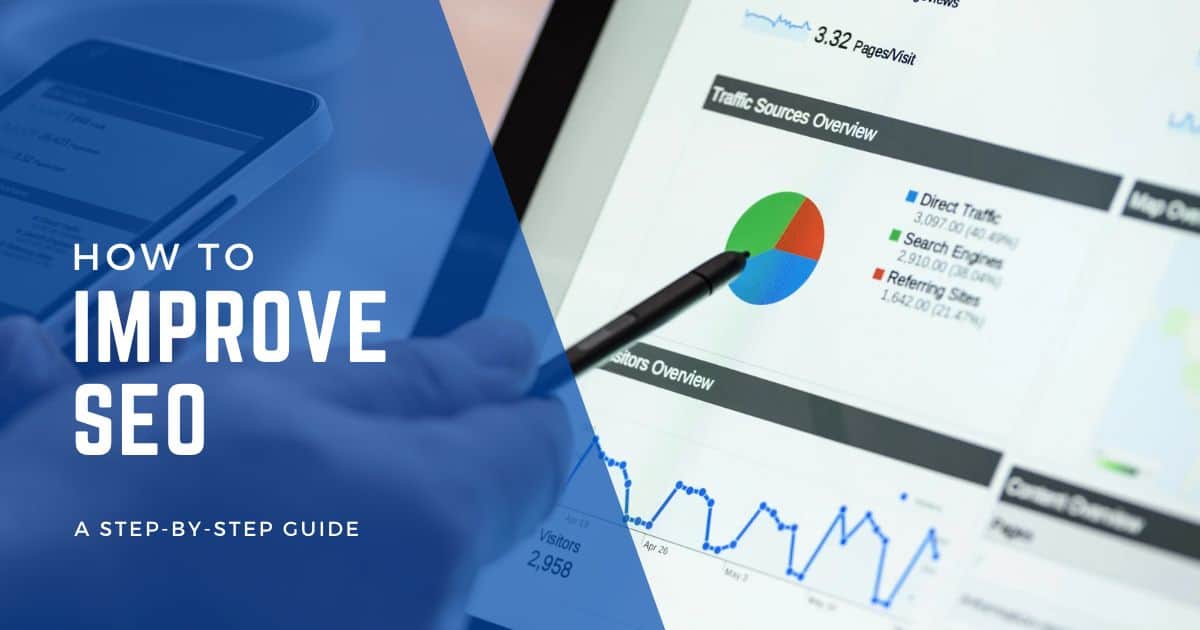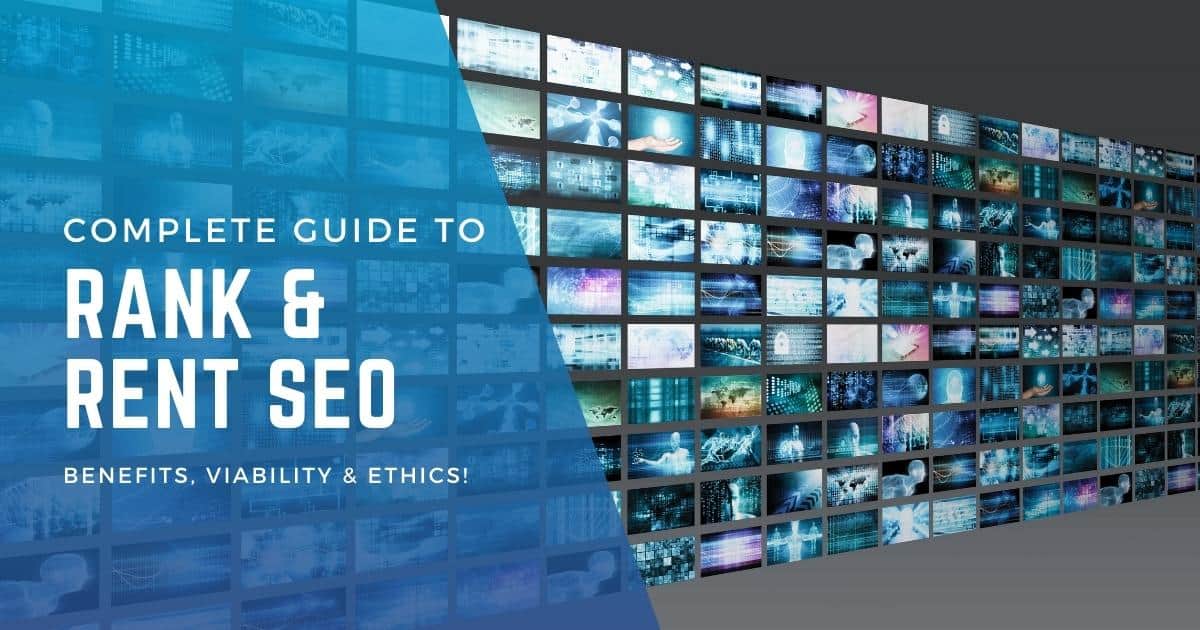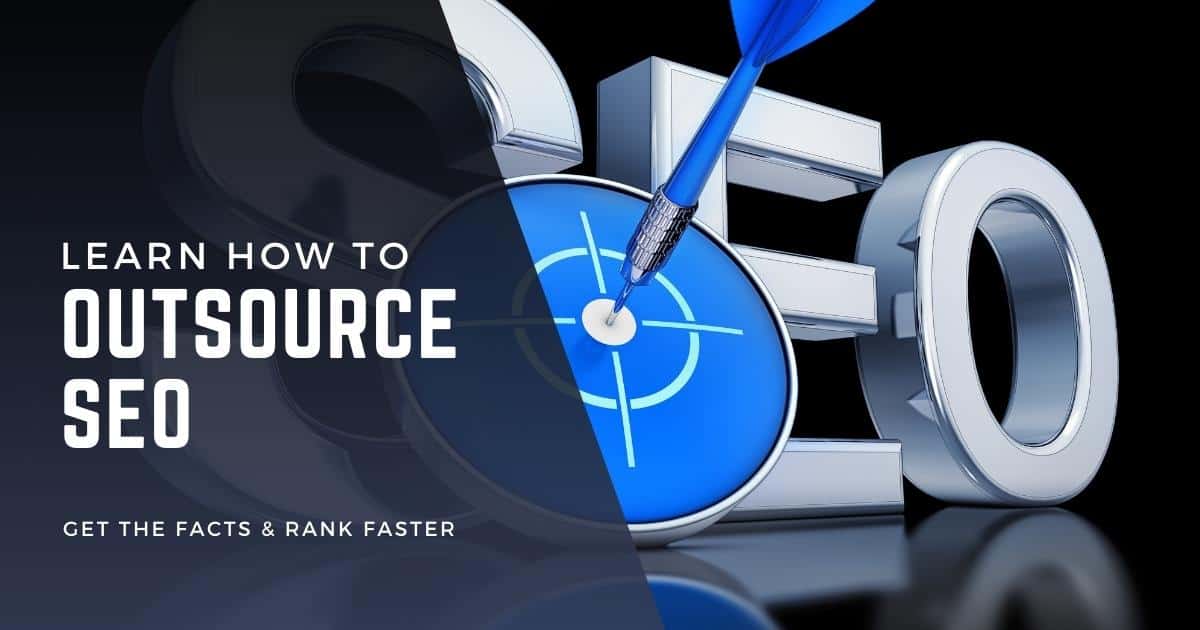You’ve got a website and want it to appear on the first search page. That’s where knowing how to improve SEO comes in. It means making changes to your website so that search engines like Google take notice.
If you’ve tried to improve your SEO, you know it’s not always straightforward. There’s keyword research content quality, and don’t get me started on algorithm changes. As a digital marketer who’s been around the block, I can assure you that this is a challenge you can conquer. We’re going to break it down into easy steps.
Why is improving your SEO so crucial? It’s simple: better SEO equals more visibility and potential customers. Whether blogging or running an online store, getting this right can make or break your online success. Ready to give your website the spotlight it deserves?
Short Summary
- Optimize content for search engines through keyword research, heading tags, and meta tags.
- Enhance user experience (UX) and optimize page speed to improve website visibility in search engine rankings.
- Build high-quality backlinks through guest posting, broken links & influencer outreach. Avoid black hat SEO techniques like keyword stuffing & cloaking.
Optimize Your Content for Search Engines

The foundation of any successful SEO strategy lies in content marketing and optimizing your content for search engines. By focusing on keyword research, utilizing heading tags, and incorporating metadata, you can ensure your content is easily discoverable and ranks higher in search results.
Remember that high-quality content is crucial for user engagement and should not be compromised when optimizing for SEO.
Keyword Research
Keyword research is key for search engine optimization. It helps you find the words and phrases people search for so you can include these terms in your site content, boosting visibility.
Using a keyword research tool, consider commercial intent to find keywords that attract buyers. Also, make sure your content matches the search intent of the keyword. This might mean updating your blog posts and other content.
Here’s a quick guide:
- Keyword Tools: Use tools like SEMRush to find popular search terms.
- Site Content: Adjust your content, like blog posts, to include these terms.
- Featured Snippets: Aim for your content to appear in Google’s featured snippets.
- Meta Title: Use your main keyword here to help search engines understand your content.
- Rank Websites: Optimized content can improve your website’s ranking.
Heading Tags
Heading tags are essential for structuring content on a page and helping search engines understand the hierarchy of your content. Using appropriate heading tags can enhance your SEO ranking by making other content pages easier to read and navigate.
However, avoid overusing heading tags, as this may cause confusion for users and hinder their ability to distinguish between topics.
Meta Tags
Meta tags are crucial in providing search engines with additional information about your web page. By optimizing your title tag and page titles with well-thought-out keyword phrases, you can improve your website’s visibility in search results.
Meta description tags are especially important, as Google may use them as snippets for your page in search results. Ensure that your meta descriptions are concise and contain all the necessary information to help users determine if the page is relevant and useful to them.
Having unique meta descriptions for each page on your site benefits users and search engines.
Enhance User Experience (UX)

User experience (UX) is a vital aspect of SEO, as it can significantly impact your website’s search engine ranking and overall performance. By ensuring your website is mobile-responsive, optimizing page speed, and improving readability, you can create a seamless experience for your users and encourage them to spend more time on your site.
Mobile Responsiveness
With the increasing prevalence of mobile device usage, having a mobile-responsive website is essential for maintaining a competitive edge in the digital landscape. A mobile-responsive site ensures your content is easily accessible and displays correctly on various mobile devices, providing an optimal user experience.
Utilizing tools like Google’s Mobile-Friendly Test and monitoring the Core Web Vitals report in Search Console can help you identify and address any issues related to your mobile site responsiveness.
Page Speed Optimization
Page speed optimization provides a positive user experience and improves your website’s search engine ranking. Tools like Google’s PageSpeed Insights can help you identify areas for improvement and provide guidance on enhancing your website’s loading speed.
By optimizing your site’s performance, you can ensure that users can quickly access and navigate your content, ultimately increasing user satisfaction and engagement.
Readability
Readability is critical to user experience, as it determines how easily your content can be read and understood. By using appropriate font sizes, colors, and spacing and incorporating elements like breadcrumbs to facilitate easy navigation, you can create an enjoyable experience for your users and encourage them to engage with your content.
Taking the time to optimize readability can significantly enhance your website’s SEO performance and user satisfaction.
Build High-Quality Backlinks

Building high-quality backlinks is a crucial aspect of SEO, as it helps improve your website’s authority and search engine ranking.
You can generate valuable backlinks that elevate your site’s standing in organic search results by employing guest posting, broken link acquisition, and influencer outreach.
Guest Posting
Guest posting is an effective SEO tactic involving writing and publishing content on a third-party website or blog, allowing you to include links to your site and establish your authority within your niche. By identifying relevant websites and producing high-quality content, guest posting can help you forge relationships with other bloggers, enhance your site’s visibility, and optimize your SEO rankings.
To successfully guest post, reach out to website owners in your niche and request the publication of your content, ensuring that it provides value to their audience and adheres to their content guidelines.
Broken Link Building
Broken link building is a unique approach to securing backlinks by leveraging broken links on other websites. By finding a suitable piece of content on your site that is relevant to the broken link and contacting the website owner to suggest your content as a replacement, you can acquire valuable backlinks while helping the site owner improve their user experience.
This mutually beneficial strategy is an effective way to improve your site’s authority and search engine ranking.
Influencer Outreach
Influencer outreach involves forming relationships with influential individuals in your niche who can help promote your brand to a wider audience. By engaging with influencers through email or social media and providing them with valuable content to share, you can gain exposure and improve your website’s SEO ranking.
Platforms like HARO can identify influencers seeking content related to your business, allowing you to connect with them and offer your expertise.
Utilize Social Media for SEO

Social media can significantly impact your SEO efforts by increasing brand visibility, engagement, and user-generated content. By sharing your content on social media platforms and engaging with your audience, you can effectively leverage social media to boost your website’s SEO rankings.
Research has also shown a positive correlation between increased social media shares and higher search engine rankings.
Share Content on Social Media
Sharing your content on social media can expand your reach and increase engagement with your audience. Be sure to include social sharing icons on your content, making it easy for users to share your work with others.
By strategically promoting your content on relevant platforms, you can attract more attention to your website and boost your SEO rankings.
Engage with Your Audience
Audience engagement is essential for building relationships, increasing brand awareness, and fostering loyalty. By producing content tailored to your audience’s interests, responding to comments and inquiries, and creating interactive opportunities such as polls and surveys, you can effectively engage with your audience and improve your website’s SEO performance.
Authentic and genuine interactions with your audience can increase website traffic, improve search engine rankings, and generate more leads.
Implement Technical SEO Best Practices
Technical SEO best practices are critical in ensuring your website performs optimally in search engine rankings. By optimizing your site structure, URL optimization, and implementing schema markup, you can provide a better user experience, improve your site’s visibility in search results, and ultimately boost your SEO rankings.
Site Structure

An organized site structure is crucial for ensuring that your website is easily accessible to both users and search engine crawlers. By creating a clear and logical hierarchy of pages, incorporating a consistent navigation menu, and utilizing internal linking, you can make it easier for users to find and engage with your content.
A well-structured site also enables search engine crawlers to index your web pages, improving visibility and rankings efficiently.
URL Optimization
Optimizing your URLs can significantly impact your site’s search engine ranking and user experience. By incorporating keywords, using hyphens to separate words, and keeping URLs concise, you can create SEO-friendly URLs easily understood by search engines and users.
Additionally, using HTTPS protocol and avoiding subdomains can further enhance the optimization of your URLs.
Schema Markup
Schema markup is a type of code that helps search engines understand the content on a webpage and display it more accurately in search results. By implementing schema markup, you can provide search engines with additional information about your content, leading to improved visibility and user experience.
Tools such as Google’s Structured Data Markup Helper can help you add schema markup to your site’s pages, ensuring that your content is optimally displayed in search results.
Image Optimization
Image optimization is a crucial aspect of SEO that often gets overlooked. When done correctly, it can significantly boost your visibility on platforms like Google Images, leading to increased traffic to your website. This is especially important for mobile users, who now make up many internet users.
Here’s why image SEO matters:
- Enhanced User Experience: High-quality, optimized images load faster, improving the overall experience for your website visitors, especially mobile users. Slow-loading images can frustrate users and potentially drive them away from your site.
- Increased Visibility: Properly tagging and optimizing your images makes it easier for Google Images to understand and rank them. This can lead to increased exposure and more visitors to your site.
- Improved Website SEO: When optimized correctly, images can improve your overall SEO. This includes using relevant keywords in your image file names and alt text, which can help search engines understand the context of your images.
Remember, image optimization isn’t just about reducing file size. It’s about creating a better user experience, making your site more discoverable, and improving your website’s SEO. So, take the time to optimize your images—it’s worth the effort!
Monitor and Analyze SEO Performance
Regular monitoring and analyzing your website’s SEO performance is crucial for identifying areas for improvement and ensuring that your optimization efforts are effective. Tools such as Google Analytics and Google Search Console can provide valuable insights into your site’s performance, helping you make informed decisions about your SEO strategy.
Google Search Console

Google Search Console is a free service that enables you to monitor, maintain, and troubleshoot your site’s presence in Google Search results. This tool provides valuable information about your site’s performance in search results and insights into potential issues affecting your website’s visibility.
By regularly monitoring Google Search Console, you can identify and address issues, submit sitemaps and URLs for crawling, and optimize your site for better search performance.
Google Analytics
Google Analytics is a powerful web analytics tool that tracks and reports your website’s traffic and user behavior, offering valuable insights to help you optimize your online presence.
By monitoring key performance indicators such as traffic, engagement, and conversions, you can identify areas for improvement and make data-driven decisions to enhance your website’s SEO performance.
Optimize for Local SEO
Local search is an essential aspect of search engine optimization (SEO), especially for businesses that cater to a specific geographic region. Using local search queries, setting up a Google My Business profile, and obtaining local citations and reviews can improve your website’s visibility in local search results and attract more customers from your target area.
Google My Business
Google My Business is a powerful tool that allows businesses to manage their online presence across Google, including search and maps. Creating and managing your Business Profile on Google can help customers find your business and provide them with important information about your products or services.
Optimizing your Google My Business profile, including adding high-quality images and regularly updating your business information, can significantly improve your website’s local SEO rankings and visibility in Google’s search results alone.
Local Citations and Reviews

Local citations and online reviews are crucial in improving your website’s local SEO performance. Citations refer to online mentions of your business’s name, address, and phone number on other websites and directories, while reviews demonstrate your business’s trustworthiness and credibility to potential customers.
By obtaining local citations and encouraging customers to leave positive reviews, you can enhance your brand’s online reputation and improve your website’s search engine ranking in local search.
Avoid Black Hat SEO Techniques
While it may be tempting to employ black hat SEO techniques such as keyword stuffing and cloaking to boost your search engine rankings quickly, these tactics can ultimately harm your website’s performance and credibility. Search engines may penalize websites that engage in black hat SEO, resulting in lower rankings or removal from search engine indexes.
Instead, focus on implementing ethical, white hat SEO strategies to improve your website’s search engine performance in the long run.
Keyword Stuffing
Keyword stuffing is a deceptive SEO practice that involves excessively using keywords in your content to manipulate search engine rankings. Search engines like Google can detect keyword stuffing and may penalize your website, negatively impacting your search engine ranking and user experience.
To maintain a positive online reputation and achieve long-term SEO success, avoid keyword stuffing and create high-quality, informative content that provides genuine value to your audience.
Cloaking
Cloaking is another black hat SEO technique that involves presenting different versions of a URL, page, or content to search engines and users to manipulate search engine rankings. This deceptive practice can result in penalties from search engines, such as lowered search rankings or removal from the search engine index.
By avoiding cloaking and employing ethical SEO practices, you can ensure that your website remains in good standing with search engines and continues to provide a positive user experience.
Final Thoughts
In conclusion, improving SEO rankings requires a comprehensive and effective strategy that includes optimizing content for search engines, enhancing user experience, building high-quality backlinks, leveraging social media, implementing technical SEO best practices, monitoring and analyzing performance, optimizing for local SEO, and avoiding black hat SEO techniques.
By following these nine proven tactics, you can ensure that your website stands out in the competitive digital landscape and achieves lasting success in search engine rankings. Stay ahead of the curve and make %currentyear% a year of unparalleled growth for your online presence.
Frequently Asked Questions
How can SEO be improved?
To improve SEO, implement a comprehensive content strategy, use both internal links and external links, ensure website usability, optimize page titles, and leverage social media.
Track organic traffic with website analytics, create relevant backlinks, utilize keyword research tools, and optimize website images and videos.
How can I improve my SEO for free?
You can improve your SEO for free by creating great content with the right keywords, perfecting titles and meta descriptions, using static URLs, sharing on social media, guest posting on relevant blogs, scoring easy links to your site, and building a strong brand.
These activities can help you increase your website’s visibility and reach more potential customers. You can also use tools like Google Analytics to track your progress and measure the success of your SEO efforts.
How can I improve my SEO for beginners?
As a beginner to SEO, there are several steps you can take to start improving your website’s search engine optimization. These include conducting keyword research, using relevant terms on your page, optimizing images and page speed, writing high-quality content, building links, and monitoring your rankings.
Following these steps will help ensure your website is well positioned in the search engine results.
What are the 3 steps to successful SEO?
For successful SEO, you must start by researching and understanding your target audience, then optimizing your website with relevant target keywords first, and finally monitoring your results to refine your strategy. By following these steps, you can ensure that your SEO efforts are properly focused on achieving desired outcomes.
How to Google SEO?
To maximize your Google SEO, publish relevant and authoritative content regularly, optimize page titles and meta-descriptions, have a link-worthy site with alt tags, and utilize wise linking practices to build trustworthiness.
By following these key steps, you’ll have an effective strategy for achieving top results in search engine rankings.



